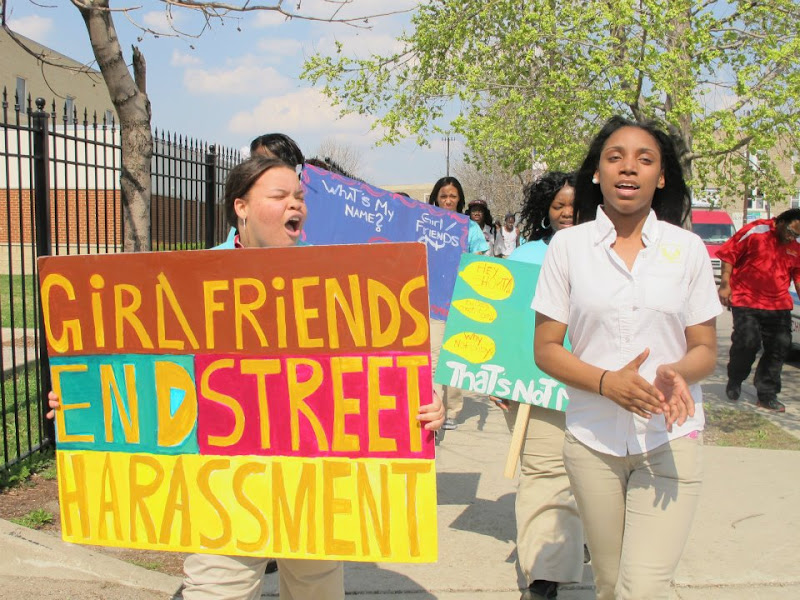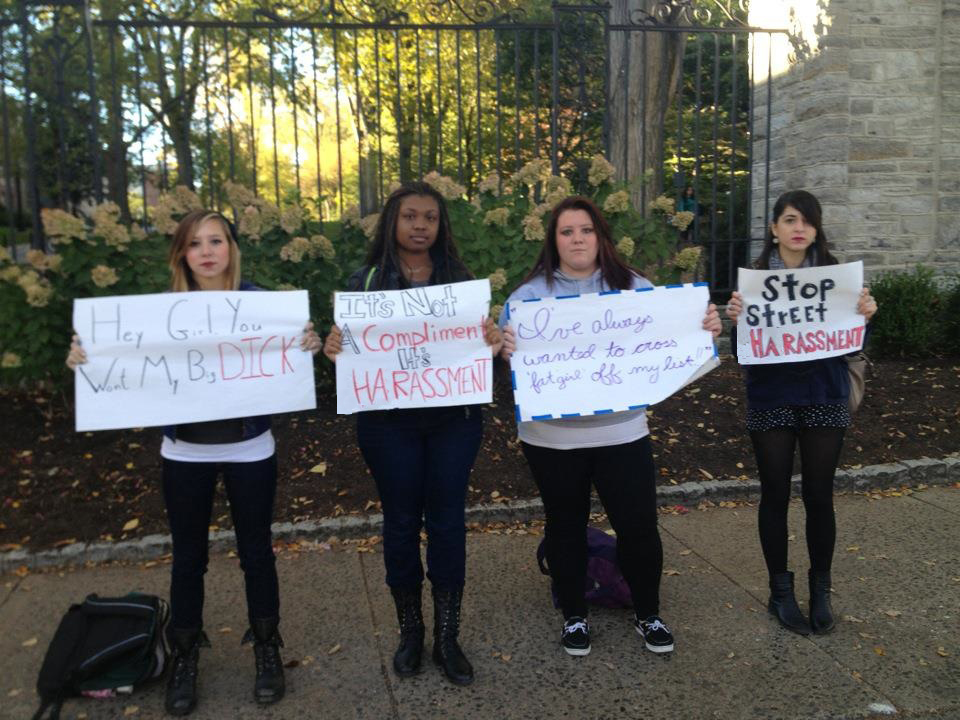Yesterday was the anniversary of the Jan. 25 revolution in Cairo, Egypt, and with many protests planned that day at Tahrir Square, anti-harassment groups prepared for an increase in incidents of sexual harassment and assault. Unfortunately, their preparation was necessary. Via Twitter & Facebook:
@OpAntiSH: Initial count of mob sexual assaults we know of are around 19 cases, at least 6 needed medical attention #EndSh #OpAntiSH #Jan25 #Tahrir
@HarassMap: “There were approx 19 cases of sexual assault/rape cases (that we know of), 6 requiring medical attention according to the first count. We managed to help 2/3 or more of these cases but the situation is critical.”
@Beltrew: #endSH team doing amazing job trying to help women who are being attacked.It’s happening everywhere. I swear this must be organised #tahrir
@HarassMap: “another eye witness report of mob sexual assault in #Tahrir yesterday where some ppl used flamethrowers, knives & clubs to try to push the attackers away. #OpAntiSH #endSH #HarassMap”
“Several cases of sexual assault have been reported from Tahrir Square, as growing protests and confusion offer a cover for the harassment. According to sources on the ground, women are being groped, verbally assaulted, and harassed in the crowds. As the crowds continue to gather in Tahrir at nightfall, women’s safety is a growing concern. Several volunteer forces, including one using the Twitter handle @TahrirBodyguard, is offering protection to women who are in Tahrir. Others are patrolling and intervening in incidents they see.”
“”The main objective is to get the girl out. It is crisis management,” says Eba’a El-Tamami, marketing and communications unit head for HarassMap.
Based in the capital, HarassMap collects data about harassment, conducts community awareness and outreach programs and is part of a campaign called Operation Anti-Sexual Harassment-Assault, which draws strength from a coalition of groups. The organization’s goal, says El-Tamami, “is to counter what we suspect are organized, mob sexual assaults.”
Verbal sexual harassment is a common nuisance on Egyptian streets. However, HarassMap and other groups claim these mob attacks constitute something far more sinister. “We think it’s organized and planned,” says El-Tamami. “We think it’s probably paid thugs, but we don’t know who is paying them. There are quite a few eye-witness reports . . . People who have had this happen say it’s very difficult to imagine this is random or sporadic . . . . I don’t want to speculate but there are definitely people who have interest in positioning the square as dangerous and make protesters look like harassers or thugs.”
Not only has the Operation Anti-Sexual Harassment-Assault coalition undertaken work on the ground to try to keep women safe, but they also offer additional services. On their Facebook page, they wrote today:
“We don´t only intervene in mob sexual attacks, we help provide support (legal/medical/emotional) through our network of lawyers and doctors. If you need support, or know of someone who does, and/or for questions/inquiries what to do, please call us on our hotlines 01202390087 01016051145 01157892357 or online (Twitter @OpAntiSH, Facebook, Email opantish(at)gmail.com). Please share this”
I applaud these brave individuals for doing what no other group or government agency would do: ensure women’s safety as they exercise their political right to protest and shape their country’s agenda and empower women to fight back!
“@OpAntiSH: Most inspiring moments of yesterday, is when attacked women right after assault asked to join #OpAntiSH! This is RESISTANCE! #Jan25 #Tahrir“









